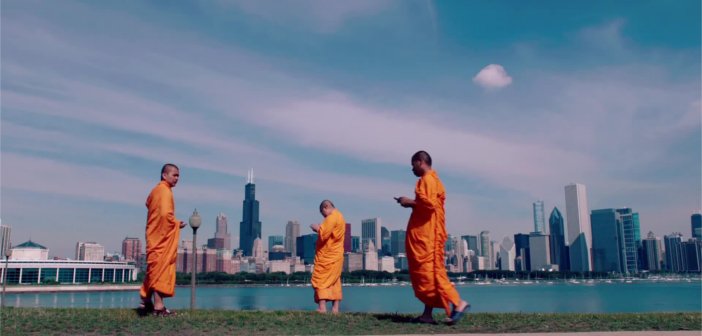Film Review | Lo and Behold: Reveries of the Connected World is About Humanity’s Changing Relationship with Technology
Werner Herzog’s latest documentary Lo and Behold: Reveries of the Connected World sees the German director tackling the biggest “revolution” humans have ever faced, the digital age. Analysing, in ten chapters, technology such as the Internet, robots, artificial intelligence and smart devices, he ponders the positive and negative effects of their advancement on mankind.
What is extraordinary about the documentary is that even though it deals with a topic, traditionally presented in popular culture as cold and sterile, it still retains a humour and warmth. This is in no doubt down to its director who, even as he investigates technological advances, never bypasses humans and their stories. As he interviews his engrossing scientific experts, he is able to glide the conversation effortlessly into unexpected areas such as inquiring whether a robot engineer truly “loves” his creation.

Herzog doesn’t just question his talking heads about what technological advancements will emerge in the future. He asks his subjects what these changes signify for humanity as a whole. Will they spark new theologies or ideologies? A shift in mankind’s morals? Early on, we are shown archive footage from the 1970s in which a newscaster states: “Imagine if you will, sitting down for your coffee and turning on your home computer to read the day’s newspaper. It is not as far-fetched as it seems”. Later a scientist refers to Philip K. Dick’s work when Herzog asks if robots will ever dream. Is it possible humanity will come to a stage where we look back on Do Androids Dream of Electric Sheep? the way we now interpret the previously shown outdated news footage? These are the real questions Herzog is concerned with.
Lo and Behold addresses matters which could, in lesser hands, come across as sensationalist, for example: Internet addicts who wear adult diapers so they never have the leave their computer screen. However, Herzog displays such a humane respect for the people involved that it never for one second feels exploitative. When a woman, who became addicted to playing online as a virtual avatar, doesn’t want to discuss the issue any more, the director abides. When he interviews a group of people living in the wilderness due to their bodies’ electromagnetic hypersensitivity (which recalls Michael McKean’s Better Call Saul character or the protagonist of Todd Haynes’ Safe), they’re never just outsiders. They come across three-dimensional, real human beings, particularly as the group consoles a member who can’t help but break down in tears describing her trauma.
The documentary has a clear bias. As many critics have noted, its ending, which features a lively musical performance followed by the closing image of a campfire, speaks volumes in regards to Herzog’s personal views. However, like the director’s previous documentary Into the Abyss, Lo and Behold never feels one-sided. While its clear Herzog isn’t too keen on a society where people may not even need human companionship, he does not ignore the good of these advancements. He spends time with engineers from Pittsburgh who are developing sentient robots to perform rescue missions during disasters, with scientists now able to cure diseases due to improvements in their equipment. Whether he disturbs with visions of a dystopian future or highlights technology’s vast potential, Herzog fascinates while allowing his audience to form their own conclusion.
Lo and Behold: Reveries of the Connected World is in cinemas now. View the trailer below.
[youtube id=”Zc1tZ8JsZvg” align=”center” autoplay=”no” maxwidth=”750"]

